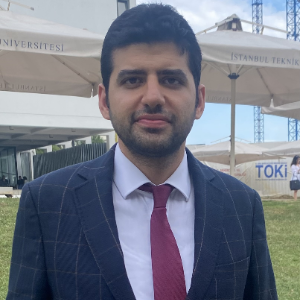Title : Characteristic changes in functionalized polyvinly alcohol based nanofibers after being stored with smoked salmon meat
Abstract:
It is important for consumers to predict the quality of processed fish products before they consume them. In this study, it is aimed to evaluate the characteristic changes in polyvinly alcohol-based nanofibers after being stored with smoked salmon. For this purpose, electrospun nanofibers were produced as control (PVA), extract incorparated (PVA+black carrot) and metal oxides incorporated (PVA+black carrot+tin dioxide) and then compared. Scanning electron microscopy (SEM) images showed the formation of ultrafine nanostructures and EDS mapping confirmed the attachment of metal oxides to the nanofibers. Differences between control (PVA), extract incorparated (PVA+black carrot) and metal oxides incorporated (PVA+black carrot+tin dioxide) nanofibers were evaluated by measuring fiber diameters. The main functional groups in these three nanofiber samples were determined and their stability compared by using Fourier transform infrared spectroscopy (FTIR). To reveal the relationship between spoilage and absorption of volatiles from smoked salmon, nanomaterial samples and salmon meat were kept together in petri dish without contact at room temperature. Disappeared bands, shiftings, and new peaks, bonding interactions between nanofibers and volatile/nitrogenous compounds were deeply investigated in FTIR spectrums. Spectral changes of nanofibers before and after the spoilage of Salmon serves as an important indicator of seafood products to alert the consumer about its spoilage. Results showed that the absorption of volatiles on nanofibers that are produced by the deterioration of smoked salmon can be examined by spectroscopic approaches. Succesfull production and application of nanofibers with nanoparticles presented in this study proved that functionalized nanofibers with extracts and metal oxides can be applied for intelligent packaging layer which provide valuable data about the potential usage of electrospinning for the detection of volatile amines in fish meat.



